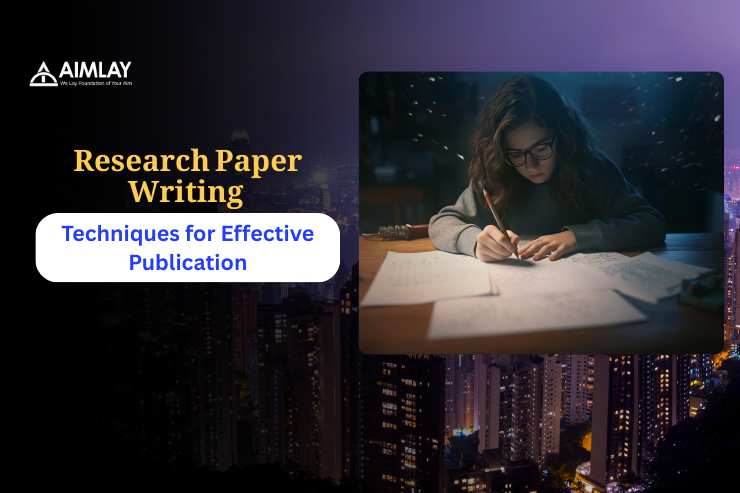5 Common Mistakes in Research Paper Submissions: How to Avoid Them
- aimlay01
- Nov 11, 2024
- 3 min read
Research paper submission is a significant step for any academic endeavor. However, there are a few pitfalls that could impact how you write your paper. Knowing and avoiding these common mistakes will increase the likelihood of your research proposal being accepted. Here's a comprehensive review of these errors and methods to avoid these mistakes.

1. Insufficient Proofreading and Editing
The most common error made by researchers is not ensuring they do careful editing and proofreading. Even the most impressive research could be ruined by typos, grammar errors or inconsistencies. These mistakes do not just distract readers, but they also undermine the credibility of your research.
How to Avoid It:
Reader Aloud Speaking your essay aloud may help you identify unnatural phrasing or missing words.
Utilize Editing Tools Make use of grammar checking tools such as Grammarly as well as Hemingway to improve your writing.
Ask for the help of a peer: Asking a colleague or an editor professional to read your work may offer fresh insight and point out mistakes you may have missed.
2. Weak or Unclear Thesis Statement
Your thesis should be the foundation the research document. Unfocused or vague thesis could make your whole research paper appear disjointed and unclear. It's essential to express your research's purpose and primary argument in the introduction.
How to Avoid It:
Make it specific: Ensure your thesis statement is directly addressing the topic of your study and outlines the paper's purpose.
Revise and refine: Revisit your thesis declaration as you write it, and refine it in order to be able to accurately reflect your findings.
Make sure you are relevant: Check that every portion of your work is in line with and supports your thesis.
3. Poor Organization and Structure
A well-structured essay improves reading comprehension and makes it easier for the reader to understand your arguments. Research papers are often rejected because of a lack of logic and poorly structured sections. Unorganized content could cause confusion to the reader and distort importance of research findings.
How to Avoid It:
Outline Prior to Writing: Creating a detailed outline will help you organize your thoughts and create an orderly progression of thoughts.
Use subheadings and headings: Clear section headings enhance readability and direct readers through your arguments.
Follow the guidelines of journals: Most journals have specific formatting guidelines, so adhere to their format guidelines.
4. Overlooking Journal Guidelines
One of the easiest to avoid errors is not adhering to the guidelines for submission to a journal. The different journals will have their own guidelines for the formatting, styles of referencing and word limits. Failure to follow these guidelines could result in immediately being rejected.
How to Avoid It:
Learn the Author Guide Carefully: Learn about the journal's guidelines prior to beginning your essay.
Create a checklist: Make a checklist to make sure every aspect of your article is compliant with the guidelines for submission.
Verify Citation Styles Check that your reference is correctly formatted regardless of whether the journal uses APA, MLA, Chicago or a different style.
5. Insufficient Explanation of Methods and Results
The methodology of your research and its results should be clearly presented and with accuracy. Uncertainty in describing your the methods used or in presenting results could create doubt about the legitimacy of your study. A lot of authors assume that readers are able to comprehend their research methodology without adequate explanation.
How to Avoid It:
Be precise but concise: Clearly describe your methods of research, such as the collection of data, sampling and methods for analysis.
Use visuals where necessary: Tables, graphs and figures are a great way to show your results and help make difficult data easier to understand.
Discussion of Limitations Review any research limitations and propose areas of further research to improve the quality of your work.
Bonus Tip: Addressing Reviewer Feedback
Even if you do not make these errors getting feedback and corrections from reviewers is not uncommon. Resolving feedback constructively from reviewers can enhance you research as well as increase the likelihood of being accepted.
How to Approach It:
Keep your mind open: Consider the reviewers' suggestions and then make the necessary improvements to your article.
Make sure you clarify if needed: If you find any review unclear, don't hesitate to get clarity from reviewers.
Highlight revisions In the event of submitting again, be sure to clearly describe the changes you have made to respond to feedback.
Conclusion
The ability to submit a research paper with no mistakes requires careful planning, focus on details, and compliance with journal guidelines. Avoiding these common mistakes - such as not proofreading properly or presenting a poorly-written thesis, a poor organizational style or ignoring submission guidelines or not describing your method and findings--you improve your odds of submitting your research paper successfully. Be aware that every part of your essay should reflect the quality of your research as well as its importance.








Comments